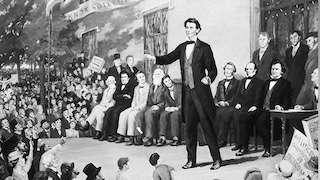Persuasion is both an art and a science. Understanding the psychological mechanisms that influence changes in people's opinions and behaviors can significantly improve your effectiveness in debates and negotiations.
Principle of Reciprocity
People tend to reciprocate actions. If you acknowledge the validity of some of your opponent’s arguments, they are more likely to agree with your points. In debates, this can be used by recognizing the strengths of the opposing position before presenting your counterarguments.
Principle of Social Proof
We often determine what is right by observing what others consider right. Referring to experts, statistics, and widely accepted views can make your arguments more convincing. For example, the phrase "most experts agree that..." uses the principle of social proof.
Principle of Authority
People tend to obey and trust authorities. Citing recognized experts or referring to authoritative sources increases trust in your arguments. It is important that your sources are relevant and reliable.
Principle of Liking
We are more likely to agree with people we like. Building rapport with the audience through shared interests, compliments, and cooperation can make your arguments more persuasive. In debates, it is important to remain polite and respect your opponent, even if you strongly disagree with their position.
Principle of Scarcity
We value what is rare or may become unavailable. Highlighting the uniqueness of your position or the consequences of not taking certain actions can strengthen your arguments. For example, the phrase "this may be the last chance for..." uses the principle of scarcity.
Cognitive Dissonance
People strive for consistency between their beliefs and actions. Pointing out contradictions in the opponent’s position can create cognitive dissonance, which they will seek to resolve, possibly by changing their opinion.
Framing
The way information is presented greatly affects its perception. The same facts, presented differently, can lead to different conclusions. For example, "the operation has a 90% success rate" sounds more convincing than "the operation has a 10% failure rate," even though the information is identical.
Ethical Considerations
It is important to use these principles ethically, for constructive dialogue rather than manipulation. The goal of persuasion in debates is not to win at any cost, but to seek truth and the best solutions.
Understanding the psychology of persuasion allows you not only to present your arguments more effectively, but also to recognize manipulation attempts by others. This makes you a more conscious participant in debates and discussions.
